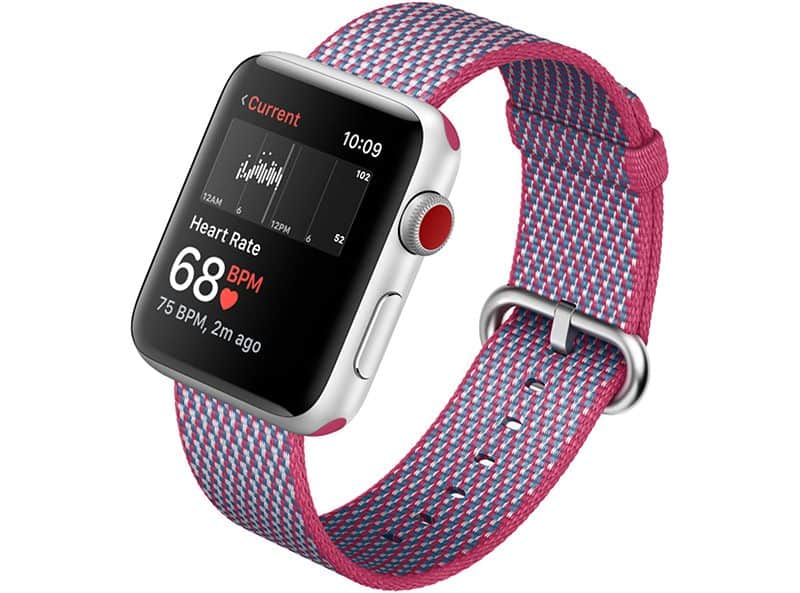
Cardiogram, a company that offers an app able to break down heart rate data collected by the Apple Watch, today shared the results of a new study that suggests the Apple Watch can be used to detect the signs of diabetes.
Cardiogram researchers teamed up with the University of California, San Francisco and used the Cardiogram DeepHeart neural network to determine that heart rate data collected from the Apple Watch was 85 percent accurate at distinguishing between people with diabetes and people without diabetes.
For the study, Cardiogram used more than 200 million sensor measurements from 14,011 participants using an Apple Watch or Android Wear device and the Cardiogram app, aggregating data that included heart rate, step count, and other activity.
Prediabetes is a condition that often goes unnoticed and undiagnosed because traditional methods of detection require glucose-sensing hardware. Detection via the Apple Watch and an AI-based algorithm like Cardiogram’s DeepHeart has the potential to alert users that there’s an issue so they can then follow up with a medical professional.
According to Cardiogram, its study is the first large-scale study that demonstrates how an ordinary heart rate sensor, like the one in the Apple Watch and other devices like the Fitbit, can detect early signs of diabetes. Because the pancreas is connected to the heart through the nervous system, the heart rate variability changes when a person begins experiencing diabetes symptoms.
Over the course of the last year, Cardiogram and UCSF have teamed up to do a lot of research into the potential for wrist-worn heart rate sensors to detect serious health conditions. Previous studies have shown the Apple Watch heart rate sensor’s ability to detect conditions that include hypertension, sleep apnea, and atrial fibrillation.
While there’s still a long way to go before research proves whether the Apple Watch can officially detect early health problems, Cardiogram plans to implement new features to incorporate DeepHeart directly into the Cardiogram app in the future, which will allow users to be alerted if early signs of disease are detected.
Apple has also launched its own study in partnership with Stanford to determine whether the heart rate sensor in the Apple Watch can be used to detect abnormal heart rhythms and common heart conditions.
You can sign up to participate in the Apple Heart Study by downloading and installing the Apple Heart Study app and wearing the Apple Watch on a regular basis. If the Apple Watch detects an irregular heart rhythm, you’ll be contacted by researchers and may be asked to wear an ePatch monitor.
You can also participate in Cardiogram’s studies by installing the Cardiogram app and signing up to join the mRhythm study.
